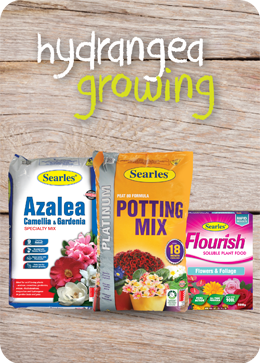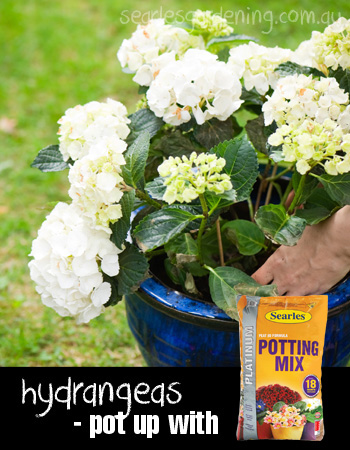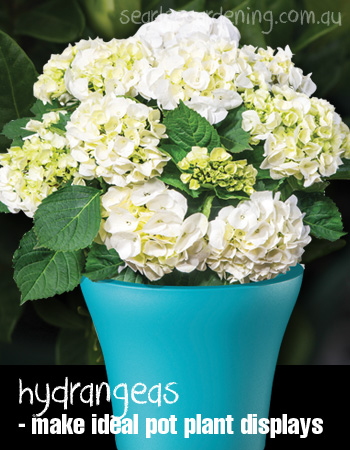How to Grow Hydrangeas
 |
|
One of the most colourful flowering plants for the home garden are hydrangeas and summer is the time they show their big bold blooms.
Planting Hydrangeas in gardens Hydrangeas are easy to grow. Hydrangeas grow best planted in a position where it gets morning sun and is protected from the hot afternoon heat. For planting hydrangeas in garden beds, plant in Azalea, Camellia & Gardenia Specialty Mix for acid-loving blue hydrangeas. For other coloured hydrangeas, Searles Planting Mix is ideal. These mixes will provide all its nutrition needs for the growing season.
Planting Hydrangeas in pots Some compact varieties of hydrangeas look spectacular in pots placed around patios and high visible areas, eg. pathways and front entrances. Plant up in Platinum Potting Mix. Platinum has plenty of fertiliser and water crystals to keep your flower heads looking big, bright and happy.
Changing the colour of Hydrangeas – Pink or Blue Traditionally you could change the colour of your hydrangeas by changing the pH of the soil, though many modern varieties available now are more fixed in their colour. Some white hydrangeas don’t change colour at all. The newer varieties feature bigger blooms and more compact habit. It is worth taking a look at what is available in garden centres.
Watering Hydrangeas Hydrangeas require regular watering, especially when they are planted in pots. They may also need extra watering during long periods of hot dry weather and summer sun. Keeping the soil moist will help retain those big blooms.
Pruning Hydrangeas
Fertilising Hydrangeas
Let us not forget they make long-lasting cut flowers. Buy a hydrangea today and follow your tips for big, bright blooms of colour this summer...
|
 --------------------------------- FOR MORE INFO CLICK PRODUCT NAME BELOW Searles Platinum Potting Mix Searles Planting Mix Azalea, Camellia & Gardenia Specialty Mix Searles Flourish Soluble Plant Food Searles Dolomite Searles Sulphur Powder |






